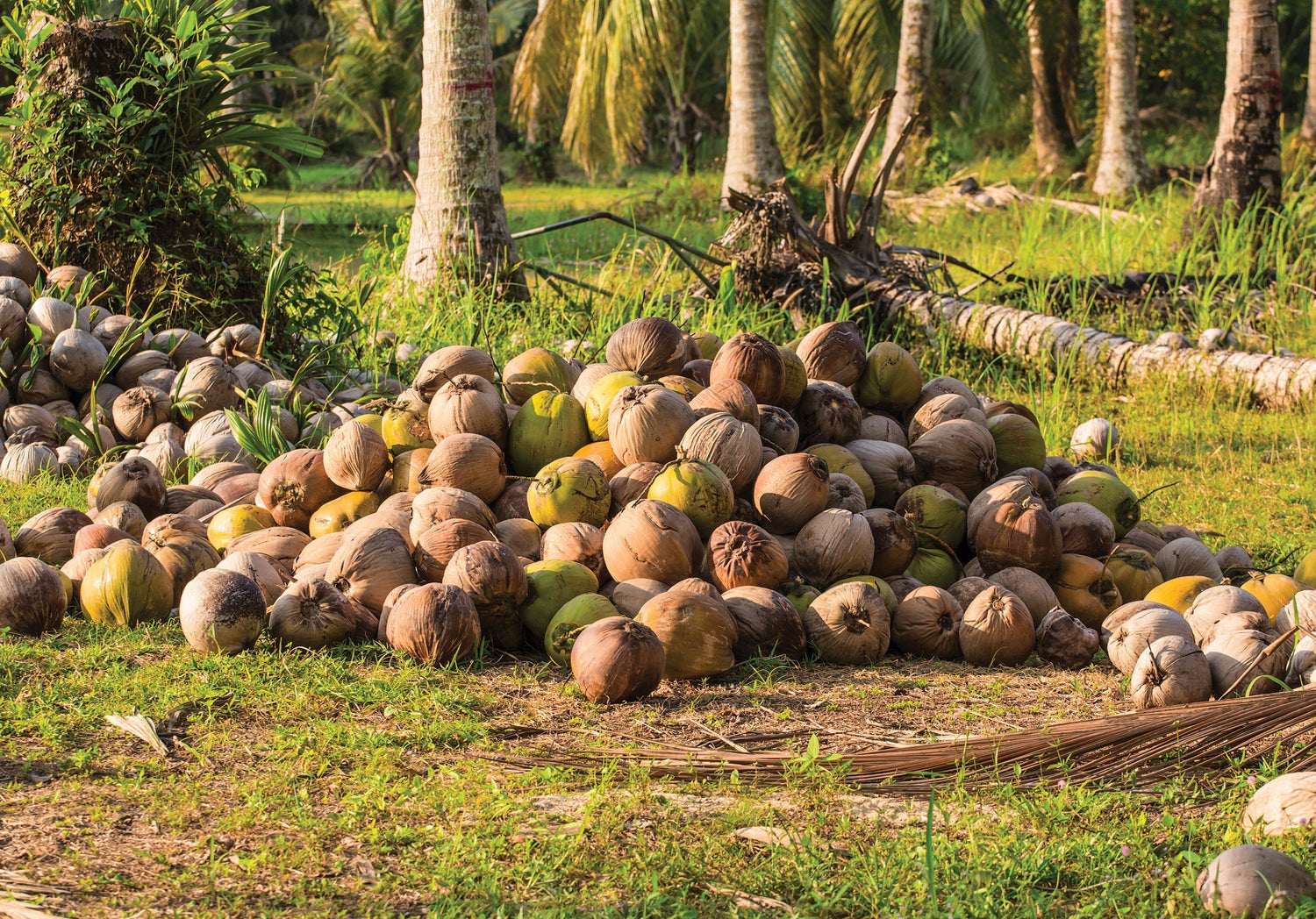Copra dryers
Post-harvest processing and value addition
Traditionally, post-harvest processing of coconuts has focused on producing edible and milling-quality copra, coconut oil, and coir-based products. However, technological research has developed effective processing methods to profitably utilize various products and by-products of the coconut palm. To better manage market fluctuations, it's essential to diversify products and make full use of by-products.
Production of quality copra using copra dryers
The traditional method of drying copra involves spreading the coconut cups on an open surface for sun drying, which takes about 5-8 days. However, this method often results in quality deterioration due to dirt and dust settling on the wet meat. To address these issues, the Central Plantation Crops Research Institute (CPCRI) has developed a range of copra dryers in various sizes and capacities. These dryers utilize the principle of indirect hot air drying, which has become the standard for copra drying. Among these innovations, the small holder’s copra dryer and the shell-fired copra dryer have gained popularity among coconut farmers for their efficiency and reliability.
Small holders’ copra dryer
The small-holder’s copra dryer is simple in design and safe to operate, with a capacity of 400 nuts per batch. It can use coconut shells, husks, and other dried agricultural wastes as fuel. The drying process takes approximately 34-36 hours, making it especially useful during the monsoon season when sun drying is not feasible. This dryer is available from the Kerala Agro-Industries Corporation for around Rs. 8,000 per unit.
Shell fired copra dryer
The shell-fired copra dryer developed by CPCRI is a natural convection dryer featuring a unique furnace design that uses coconut shells as fuel. It has a capacity of 1000 nuts per batch and requires less fuel, with the drying process taking only 24 hours. Once ignited, the shell produces heat for about six hours, reducing labor requirements. A version with a capacity of 500 nuts per batch has also been developed. These dryers are available through the Agricultural Technology Information Centre at CPCRI in Kasaragod.
